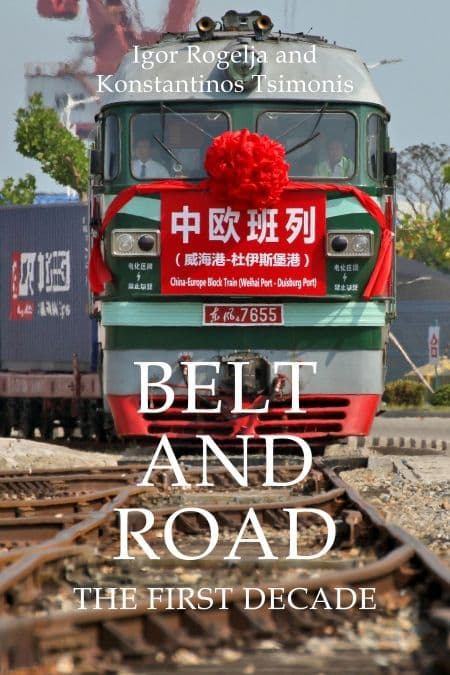Author/s
Igor Rogelja and Konstantinos Tsimonis (eds.)
Publication Year
December 2022
Source
- ISBN: 9781108769631 9781788212540
- Series: Business with China
BOOK DESCRIPTION
The Belt and Road Initiative (BRI) is one of the most talked about yet little understood policy initiatives of the People’s Republic of China. This book offers a comprehensive, balanced and policy-oriented assessment of the BRI’s first ten years and what it has meant for the world’s businesses, polities and societies. The authors explore China’s role as a globally significant source of development finance and investment capital, and examine the political, economic, normative, environmental and social implications of its increased presence in the world.
Aimed at researchers and academics, business professionals and policy analysts, as well as informed readers, the book seeks to answer some of the most pressing questions that China’s rising economic presence in global markets poses: how is the BRI organized? Is it China’s grand strategy? Is it green, is it corrupt, and what are its social effects? Is there even a future for the BRI in a world beset by new uncertainties? The book offers a sober analysis of the most prevalent narratives that cast China as a “threat” and as an “opportunity” and considers the specific challenges that it presents for the liberal international order.
TABLE OF CONTENTS
Acknowledgements
Acronyms and Abbreviations
- What is this book about?
- How is the BRI organized?
- Is it China’s grand strategy?
- Is it green?
- Is it corrupt by design?
- Is it socially responsible?
Conclusion: Is there a future for the BRI?
References
Index
About the author

Konstantinos Tsimonis
Senior Teaching Fellow, Department of Politics and International Studies, SOAS, University of London, UK

Igor Rogelja
Lecturer in Global Politics at University College London



